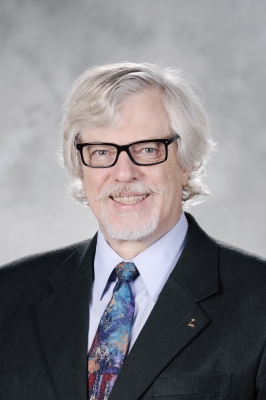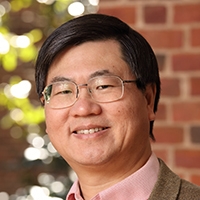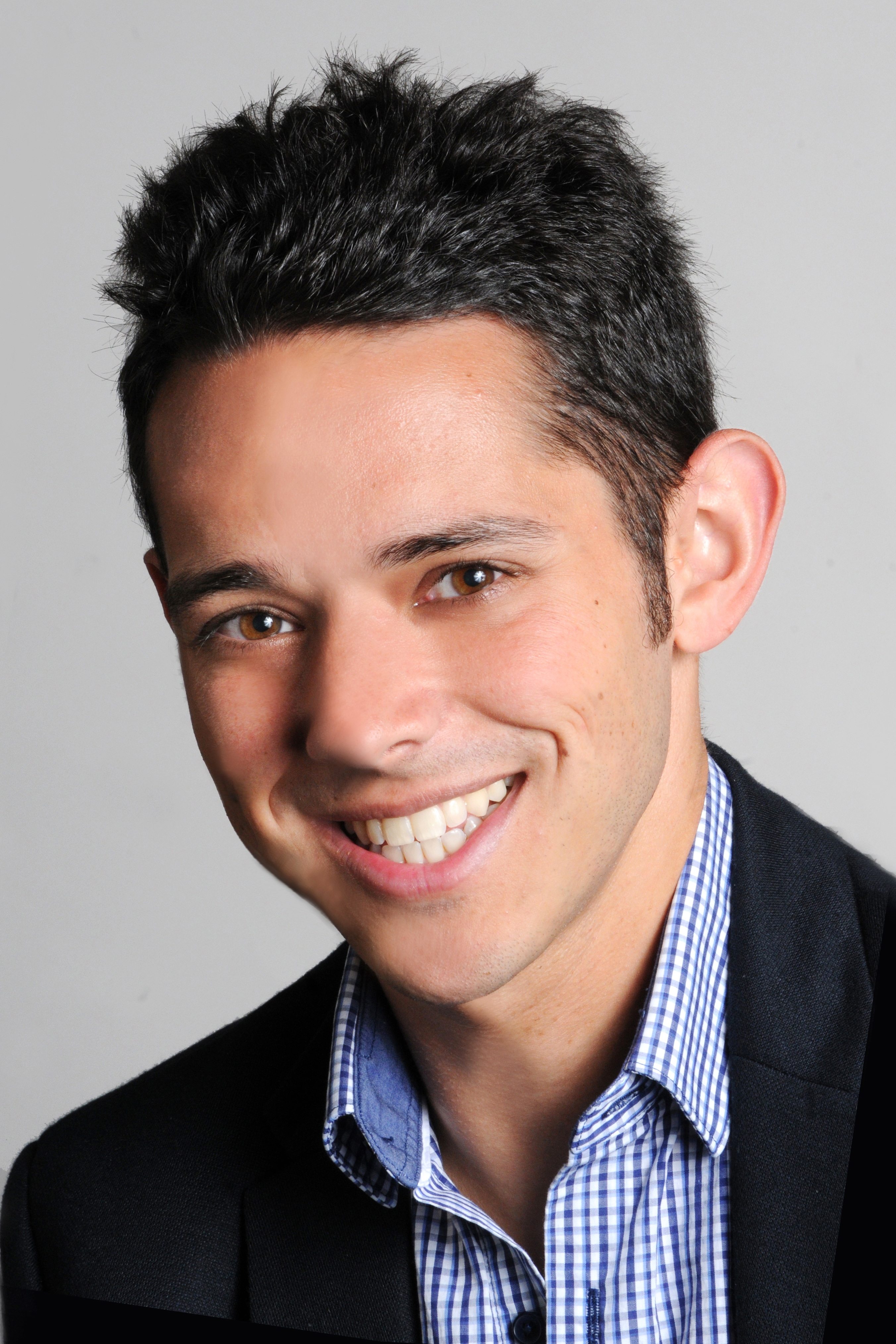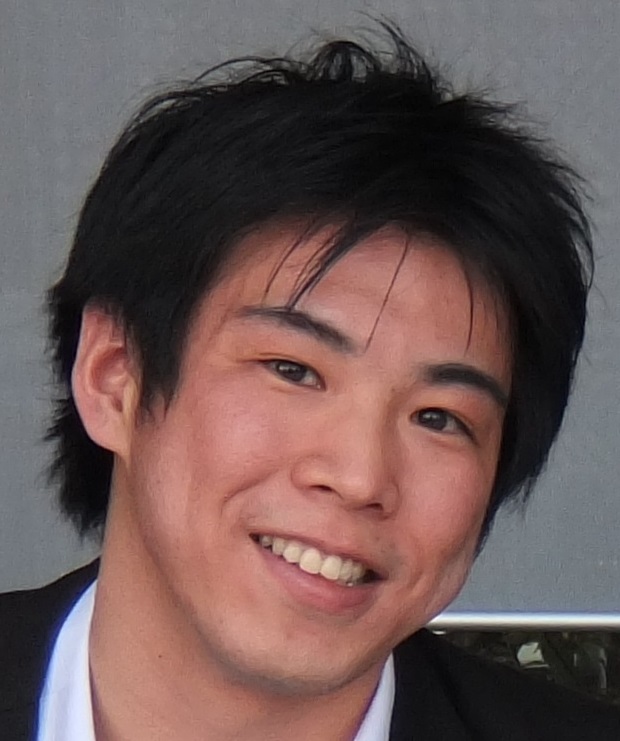October 17, 2019 – 11:00 AM
TSRB 442

Erik Verriest
Professor
Electrical and Computer Engineering
October 17, 2019 – 11:00 AM
TSRB 442

Erik Verriest
Professor
Electrical and Computer Engineering
October 11, 2019 – 11:15 AM
TSRB 523A

Zongli Lin
University of Virginia
Abstract
Low gain feedback refers to a family of stabilizing state feedback gains that are parameterized in a scalar, referred to low gain parameter, and go to zero as the low gain parameter decreases to zero. Low gain feedback was initially proposed to achieve semi- global stabilization of linear systems subject to input saturation, and later found its other applications in the stabilization of nonlinear systems and linear systems with input delays. In this talk, we discuss the concept of low gain feedback, its properties, its design methods and its applications in constrained control, nonlinear stabilization and control of time-delay systems.
Biography
Zongli Lin is the Ferman W. Perry Professor in the School of Engineering and Applied Science and a Professor of Electrical and Computer Engineering at University of Virginia. He received his B.S. degree in mathematics and computer science from Xiamen University, Xiamen, China, in 1983, his Master of Engineering degree in automatic control from Chinese Academy of Space Technology, Beijing, China, in 1989, and his Ph.D. degree in electrical and computer engineering from Washington State University, Pullman, Washington, in 1994. His current research interests include nonlinear control, robust control, time delay systems, and control applications. He was an Associate Editor of the IEEE Transactions on Automatic Control (2001-2003), IEEE/ASME Transactions on Mechatronics (2006-2009) and IEEE Control Systems Magazine (2005-2012). He was elected a member of the Board of Governors of the IEEE Control Systems Society (2008- 2010, 2019-2021) and chaired the IEEE Control Systems Society Technical Committee on Nonlinear Systems and Control (2013-2015). He has served on the operating committees several conferences and was the program chair of the 2018 American Control Conference and a general chair of the 13th and 16th International Symposium on Magnetic Bearings (2012, 2018). He currently serves on the editorial boards of several journals and book series, including Automatica, Systems & Control Letters, Science China Information Sciences, and Springer/Birkhauser book series Control Engineering. He is a Fellow of IEEE, IFAC, and AAAS, the American Association for the Advancement of Science.
October 04, 2019 – 11:15 AM
TSRB Auditorium

Scott Moura
UC Berkeley
Abstract
Variable renewable energy integration and resilience to extreme events motivate the need for flexible resources in electric power systems. Distributed energy resources (DERs), such as electric vehicles and thermostatically controlled loads, provide an intriguing set of distributed assets to provide flexible services in power systems. However, leveraging populations of DERs are challenging because they are (i) large-scale, and (ii) involve discrete-valued control. This talk addresses modeling, estimation, and control for aggregations of DERs. Specifically, the talk is divided into two parts. First, we discuss a partial differential equation (PDE) approach to modeling and estimating aggregations of DERs. Second, we discuss a novel class of methods for controlling DER populations that are mathematically formulated as large-scale mixed integer programs. We call this class of methods “Hopfield methodsâ€.
Biography
Scott Moura is an Associate Professor in Civil & Environmental Engineering and Director of the Energy, Controls, & Applications Lab (eCAL) at the University of California, Berkeley. He is also a faculty member at the Tsinghua-Berkeley Shenzhen Institute. He received the B.S. degree from the University of California, Berkeley, CA, USA, and the M.S. and Ph.D. degrees from the University of Michigan, Ann Arbor, in 2006, 2008, and 2011, respectively, all in mechanical engineering. From 2011 to 2013, he was a Post-Doctoral Fellow at the Cymer Center for Control Systems and Dynamics, University of California, San Diego. In 2013, he was a Visiting Researcher at the Centre Automatique et Systèmes, MINES ParisTech, Paris, France. His research interests include control, optimization, and machine learning for batteries, electrified vehicles, and distributed energy resources.
Dr. Moura is a recipient of the National Science Foundation (NSF) CAREER Award, Carol D. Soc Distinguished Graduate Student Mentor Award, the Hellman Fellowship, the O. Hugo Shuck Best Paper Award, the ACC Best Student Paper Award (as advisor), the ACC and ASME Dynamic Systems and Control Conference Best Student Paper Finalist (as student and advisor), the UC Presidential Postdoctoral Fellowship, the NSF Graduate Research Fellowship, the University of Michigan Distinguished ProQuest Dissertation Honorable Mention, the University of Michigan Rackham Merit Fellowship, and the College of Engineering Distinguished Leadership Award.
September 27, 2019 – 11:15 AM
TSRB Auditorium

Tatsuya Ibuki
Tokyo Institute of Technology
Abstract
This talk presents a novel geometric method to investigate whether a multirotor unmanned aerial vehicle (UAV) can achieve stable hovering, i.e., hoverability. The hoverability is indispensable for a multirotor UAV to conduct its task safely, and should be satisfied even when a rotor fails to prevent an accident. The proposed geometric method reveals the relationship between the position of the center of mass (CoM) and the rotor placement of a multirotor UAV to satisfy the hoverability, which can be applied to a multirotor UAV with any number and position of rotors. This talk also provides its application to investigation of a robust structure against rotor failures. Furthermore, a quantitative measure of the hoverability is newly presented based on the proposed analysis method. It enables us to design a multirotor UAV with an optimal structure in the sense of the hoverability. Finally, experimental validation is performed by using a hexrotor UAV whose CoM position is intentionally shifted.
Biography
Tatsuya Ibuki is an Assistant Professor at the Department of Systems and Control Engineering of Tokyo Institute of Technology, Japan. He received his Ph.D.Eng. degree from Tokyo Tech in 2013. He was a research fellow of the Japan Society for the Promotion of Science from 2012 to 2013, and is currently a visiting scholar at the School of Electrical and Computer Engineering of Georgia Institute of Technology. His research interests include cooperative control of robotic networks, multirotor UAV design and control, and vision-based estimation and control. He received some awards from the Society of Instrument and Control Engineers in Japan on these topics.